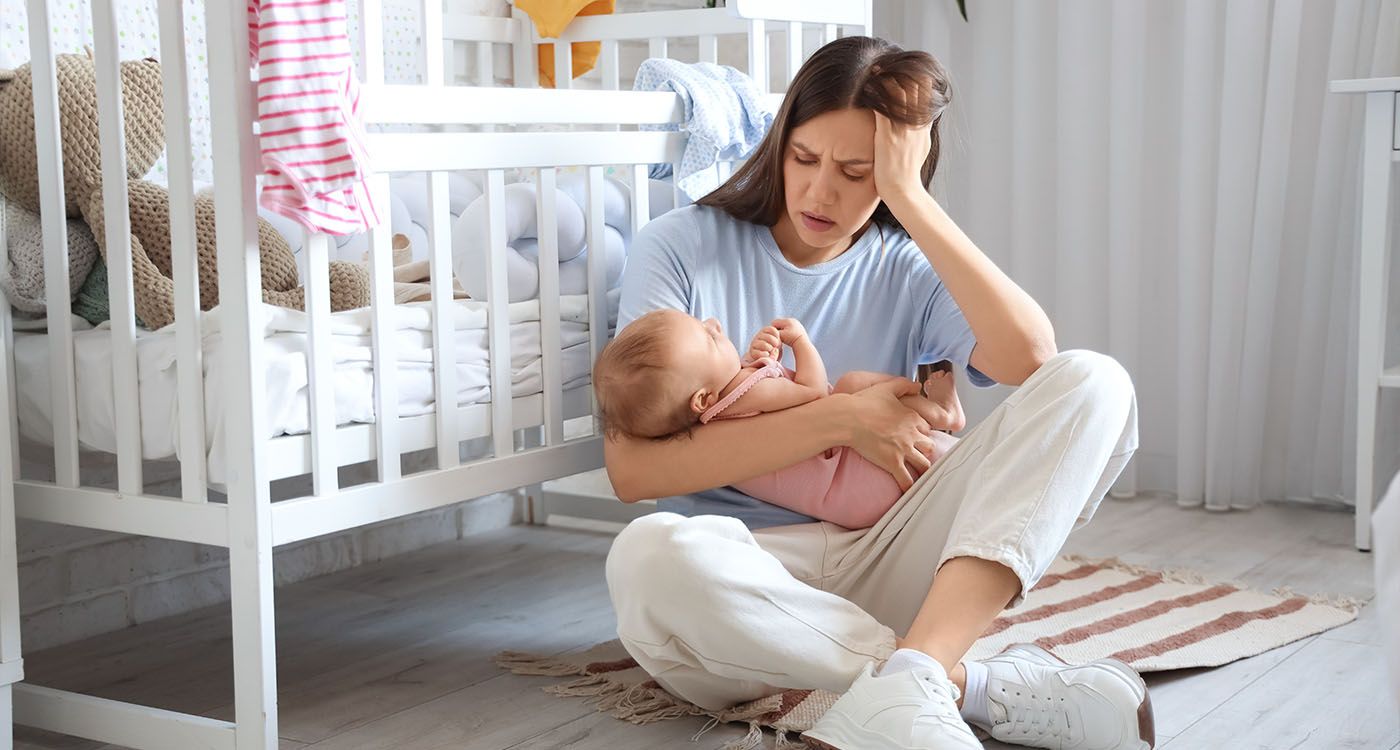- Home
- Highlights
- Late Pregnancy: The Unseen Joy and Unspoken Anxiety

©Shutterstock
Behind the smiles of late pregnancies often lie deep anxieties. Medical pressures, overlooked exhaustion and the expectation of gratitude mean that women pregnant after 35 face invisible vulnerabilities, extending into the postpartum period. It’s time to talk openly and honestly about maternal mental health.
For many women, becoming pregnant at 36, 39 or 42 is rarely accidental. Pregnancy after 35 often comes after careful consideration: a settled career, a stable relationship or a chosen solitude. This journey can be marked by challenges such as miscarriages, IVF, loss and sacrifice. Late motherhood is often seen as a privilege, almost a miracle, embraced with gratitude.
But beneath this gratitude lies a more complicated reality. Several women report not daring to complain for fear of being seen as ungrateful. The radiant smile often hides exhaustion, anxiety over doing things wrong, and a subtle sense of being out of step.
Research confirms that this complexity often includes heightened anxiety and depression. According to a study by Inserm, women pregnant after 38 show more signs of anxiety and depression than younger women, despite often being in a more stable environment. This anxiety takes many forms. First, there is increased medical monitoring. From the start, late pregnancies are labeled “high risk,” with exams, ultrasounds and warnings piling up. While this protocol can be reassuring, it also creates a constant sense of control, where every step feels like a hurdle that must be flawlessly navigated.
Next comes the physical and emotional strain. “I pushed myself to do everything like I was 30,” shared a 40-year-old mother. “I didn’t want anyone to notice how tired I was.” The fear of not being “enough” – not energetic enough, patient enough or young enough – can become a source of anxiety.
Then there’s the judgment from others. Some healthcare professionals aren’t always tactful: comments about “advanced age,” constant warnings about risks and cesarean sections presented as inevitable. Family and friends add their own mixed messages: “It’s brave of you to try,” “You’re strong,” or “You won’t get too tired, right?” These seemingly harmless remarks only serve to underline how this kind of motherhood remains on the fringes.
After Birth: Baby Blues or Postpartum Depression?
After the baby is born, the inner turmoil doesn’t always subside. Baby blues – a wave of sadness and vulnerability that affects up to 80% of women in the days following delivery – is normal. However, it can sometimes hide deeper issues.
Postpartum depression affects about 17% of mothers, according to Santé publique France. It can develop weeks or even months after birth and is marked by extreme fatigue, loss of interest, dark thoughts and overwhelming guilt. For mothers over 35, the risk may be higher due to a heavier mental load, strong self-expectations, and sometimes greater isolation.
At times, this distress remains hidden, crushed under social pressure. “I felt ashamed to be sad when I finally had a baby,” shared a woman during her postnatal check-up. The expectation to feel grateful often prevents many from seeking help. Yet according to Drees, suicide is the leading cause of maternal death in France within the first year after childbirth. This sobering statistic highlights the urgent need for early identification and mental health support.
For a long time, maternal mental health was sidelined. Today, progress is slow but steady. Some maternity wards now offer routine postnatal screenings. Support groups for mothers are becoming more common. Psychological consultations are increasingly covered by insurance. Yet these services remain unevenly available, little known, and sometimes inadequate.
What’s most needed is likely a cultural shift. Admitting vulnerability should no longer be seen as a sign of failure. A mother can be fulfilled and still carry fears or sadness. She can long for a child and feel overwhelmed once the baby arrives.
Women who become mothers after 35 often carry a complex, sometimes challenging history. They don’t need to be idealized, but simply genuinely heard. Maternal mental health is an integral and vital part of late motherhood.
Postpartum Depression: An Overlooked Reality
According to Santé publique France, 16.7% of women show signs of postpartum depression eight weeks after giving birth. Among mothers over 35, the rate rises slightly, especially for first-time mothers. Yet only one in three receives appropriate support, making this a public health issue that remains widely underestimated.

Comments